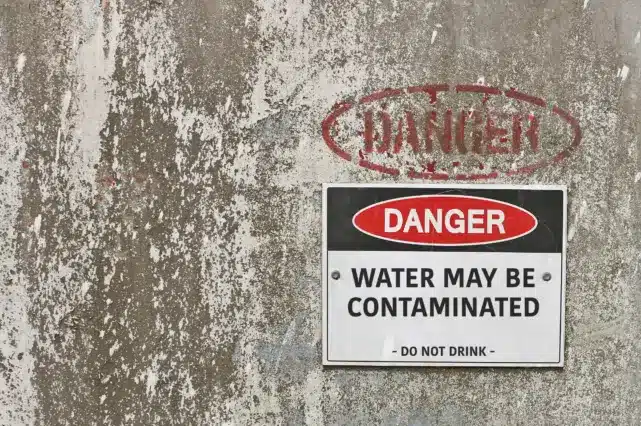
Is there something in your water? Although we are fortunate to have running water made potable by modern water treatment facilities, there are still contaminants to be cautious of, including chemicals of all kinds.
Water is essential for life in all organisms. It is just as essential to know if there are hidden dangers in the water that we are drinking daily.
Some of the chemicals that we find in our water are from natural sources, like mineral deposits, while others are potentially caused by human activities such as drilling, coal plants and petroleum production. Other contaminants, especially lead, are often from plumbing in homes or municipal water infrastructure.
Even corrosion, discharge and runoff from other objects and sources can cause contamination. Other toxins from products and materials that we use, such as BPA, DDT and even pesticides, have the potential to make their way into drinking water.
Excessive amounts of these chemicals in water are harmful. And when consumed over the course of time in even minimal amounts they can have short-term repercussions and cumulative long-term effects.
SHORT-TERM EFFECTS
There is a reason travel experts advise visitors in Mexico to avoid drinking the tap water. It's the same reason so many people living in the country drink bottled water exclusively or install water filtration systems in their homes. Some people who do drink tap water in parts of the country where contamination is common experience the short-term consequences of contaminated water, including nausea, vomiting and diarrhea.
Some severe cases of water contamination can cause fever, convulsions, liver injuries and renal failure. The resulting dehydration or failure to treat any side effects can even cause death.
Mexico certainly isn't the only country where tap water can be at risk for contamination at some point between a treatment center and the tap. People in places that lack purification, bottled water or the ability to easily boil water might suffer the short-term effects of water contamination a couple of times a year and simply accept it as a fact of life.
LONG-TERM EFFECTS
Many of the chemicals that naturally occur in our drinking water, especially well water, can be removed. Lead, iron, boron, radon and arsenic are all common chemical elements and minerals that can potentially be found in well water.
Removal of dangerous levels of these minerals and chemicals is important because too much of certain chemicals can poison the body. Consumption of these substances can have severe negative effects when consumed over a long period of time. Toxins can get into our bodies, infiltrate our intestines and be absorbed by our livers and other organs in the body, leading to cumulative long-term negative effects that can be difficult to effectively treat.
CANCER RISKS
One of the long-term risks of consistent exposure to chemicals in water is cancer. There are many cancer-causing chemicals that can be found in water, such as arsenic, byproducts from chlorine treatment, nitrates and polyfluoroalkyl substances.
The forms of cancer most frequently associated with contaminated water include cancers of the digestive system, including bladder, kidney, liver, prostate and colon cancer. Water toxins can also contribute to lung and skin cancer.
CARDIOVASCULAR SYSTEM
Consumption of certain chemicals found in water, such as arsenic, can lead to cardiovascular issues. Arsenic can compromise heart structure and raise the risk for heart disease.
NERVOUS SYSTEM
The nervous system can also be negatively impacted by chemicals. Certain pollutants, like lead and barium, have been found to accelerate nerve damage and neurotoxicity. Damage to the nervous system can cause serious issues such as brain swelling, muscle weakness and difficulty with breathing, as it also affects the heart and lungs. This increases the risk for severe diseases such as Parkinson's and Alzheimer's and may result in behavioral problems or learning disabilities in children.
SKIN
We know to wear sunscreen to protect our skin, but did you ever think that the water you are drinking and bathing in can be bad for your skin too? Chemicals like arsenic, chromium and copper can cause skin irritation and in some cases skin disease and skin cancer. People exposed to particularly high levels of water contaminants may experience physical changes in their skin color or get hard patches on certain areas of their body.
MAKE SURE YOUR HOME'S WATER IS SAFE
The many ways that chemicals can impact our health makes it crucial to test our water and be mindful of what we are consuming. Vito Services is committed to protecting Rockville and Washington D.C. residents from harmful chemicals and helping them understand their water better.
Our plumbing experts can provide water testing and water filtration services so you can be sure you and your family are drinking safe, clean water.
We're also proud to participate in DC Water's Lead Pipe Replacement Assistance Program (LPRAP). If you believe your home has lead pipes we can check and help you determine whether you qualify for free or discounted lead pipe replacement.








